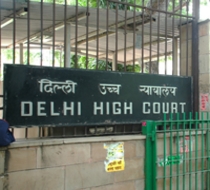The Bombay High Court has granted Kings XI Punjab an interim stay on its expulsion from the IPL but said the franchise will have to satisfy certain conditions, including retaining its shareholding pattern, fulfilling pending player payments and paying the BCCI guarantee money in case the final judgement goes against them. The court also rejected Punjab's request to defer the date for submission of the list of players they would like to retain for the fourth edition of the league, the deadline for which expires today. Punjab have until midnight to finalise their list.
After listening to both parties over the last two days, Judge SJ Vajifdar said that "prima facie" Punjab had a strong case against the explusion and the "interim injunction" was only just. But his verdict carried many riders, the most important being that the franchise cannot change its shareholding pattern and the control should rest in the hands of the four main owners: Ness Wadia, Preity Zinta, Mohit Burman and Karan Paul. The court said that these four needed to hold not less than 51% of the shares in KPH Dream Cricket Pvt. Ltd - the rights-holding company of the franchise - until the final judgement. Punjab's owners refrained from commenting on the issue before they received the court order in hand tomorrow.
In the interim, Punjab will have to submit various guarantees to the court and the BCCI. The first is clearing the pending payments to its players over the last two years, an amount running upto Rs.35 crore ($7.77 million). And now, since the franchise is free to re-enter the IPL arena, the court has asked it to commit an amount of $18 million for the next two years (at the rate of $9 million per year) as guarantee money for player payments in case the franchise participates in the league.
The other important condition the court asked Punjab to fulfill was to pay the BCCI $3.5 million per year for a period of two years, as security towards any damage incurred by the board in case the final verdict went against Punjab later on.
Wednesday's news will be seen as another blow to the IPL, whose 2011 tournament has been put increasingly at risk by a succession of court cases. While the Rajasthan and Punjab franchises were embroiled in courtroom battles, a third (Kochi) barely made it over the line. As a result of the controversies, the player auction for the season has been delayed by several months.
In October the BCCI had terminated Punjab, holding the franchise guilty for violating the franchise agreement on three counts, the biggest offence being that the ownership had changed twice in the first three years of the league, something that went unreported to the Indian board.
The franchise moved court last month seeking redressal for the cancellation of its IPL contract. Its petition contended that the termination was a "deliberate and calculated" move to ensure a new and more lucrative re-bidding process. Both parties then decided to opt for the arbitration process, but that too got embroiled in controversy when the arbitrator, Justice BN Srikrishna, recused himself after admitting to the BCCI that he had been legal counsel for the Wadia Group, part owners of Punjab, for many years.
At that point the issue seemed to be snowballing into another protracted battle, just like the one Rajasthan Royals had got involved in with the BCCI. But Punjab rushed to the High Court for help and have now found new crutches to lean on before building their case in front of the arbitrator.
The confusion over the eventual number of teams that will be involved next season affects every component of the world's most lucrative domestic league: its teams/ franchises, its players and its very structure.
|






